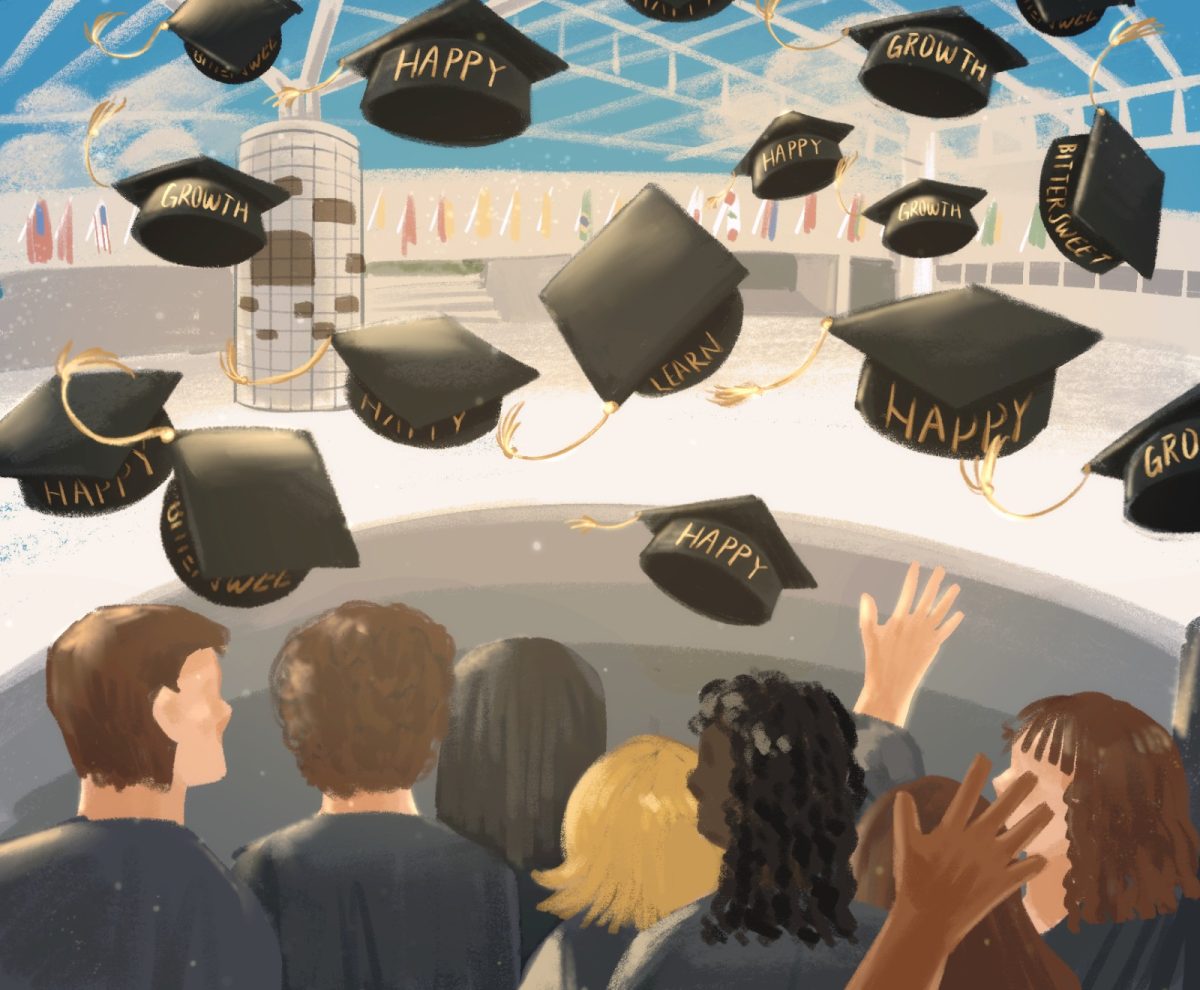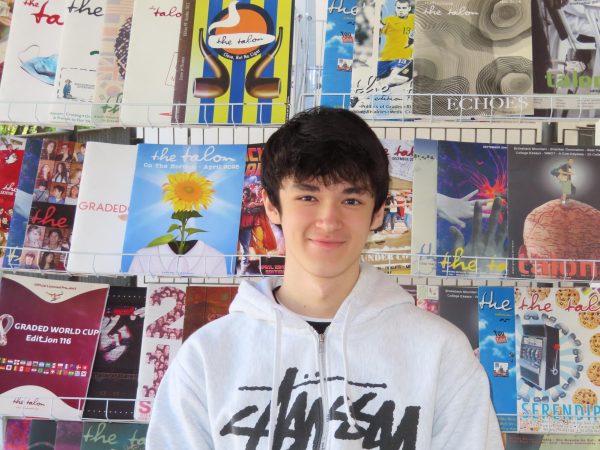Graded has officially announced the next chapter in its leadership: Jane McGee, a seasoned international educator and leader, will step into the role of Superintendent beginning in July 2025. In an exclusive interview, The Talon sat down with Ms. McGee to learn more about the journey that brought her here, fun facts about her, and the vision she brings for Graded’s future.
Jane McGee is no stranger to global education. Most recently the Head of School at the United Nations International School Hanoi (UNIS Hanoi), she has led with purpose and impact across four continents. From her beginnings as a mathematics and science teacher to senior leadership roles in Poland, India, Lao PDR, and beyond, McGee’s career is defined by a passion for student-centered learning and intercultural understanding. She holds multiple degrees from Queen’s University in Canada, including a Master of Education in Administration and Policy Studies and a Bachelor of Science with Honors in Mathematics.
When asked why she chose to join the Graded community, Ms. McGee didn’t hesitate to highlight what set the school apart. “There was this incredibly strong sense of community — warm, welcoming, and deeply student-centered,” she reflected. During her visit, she met with students, parents, faculty, and staff, and what stood out was the consistency: every conversation, regardless of the group, revolved around student learning and well-being: “I felt like everything was students centered, every conversation I had was about all of you, which is what you want to hear in a school.”
“You’re joining a community that wants to do what’s right for students,” she said, citing the professionalism of the leadership team and the thoughtful, passionate questions she was asked throughout the process. For Ms. McGee, it wasn’t just the impressive credentials or polished presentations that made Graded stand out — it was the authenticity and shared purpose she felt from every corner of the school.
In the following Q&A, Ms. McGee shares insights about herself, her leadership philosophy, and her hopes for the years ahead.
Sebastian: What are your goals as superintendent?
Jane: My most important goal initially will be building relationships with all the different stakeholder groups and learning from them about the school. I don’t deeply understand the organization yet, and every conversation helps me learn more. The goal is to understand what works and how we can make it even better for students.
Sebastian: What languages do you speak?
Jane: English and a bit of French. But I’ve heard I’ll need to start learning Portuguese!
Sebastian: What activities do you enjoy most?
Jane: I like going to the gym regularly, and I enjoy reading.
Sebastian: What was your favorite subject in school, and why?
Jane: I really enjoyed math. I liked the patterns and the way you could take foundational understanding and connect it to new concepts. I liked pulling the pieces together and making sense of it all.
Sebastian: If you could bring one historical figure to speak at a school assembly, who would it be?
Jane: Probably Marie Curie. I’d want to bring a female scientist because women have historically been underrepresented in terms of their contributions to science.
Sebastian: If you weren’t in education, what other career would you have pursued?
Jane: Maybe accounting or actuarial science. But I realized I didn’t want to be behind a computer all day. I wanted that human connection, and education gave me a balance between logic and working with people.
Sebastian: What’s a question students don’t ask you enough—but should?
Jane: I think students should ask why we do what we do—why what we’re learning and how we’re learning it matters for them as learners, and how it supports their development as people.
Sebastian: What’s one challenge in education that keeps you up at night?
Jane: Artificial intelligence. It has so much potential, but also a lot of hesitancy. The challenge is finding the right balance—using it to support learning while maintaining a humanistic approach, especially with concerns about too much screen time.
Sebastian: If you could add one unconventional class to the curriculum, what would it be and why?
Jane: I’d add a course on artificial intelligence and understanding how technology impacts who students become and how they relate to others. There’s fascinating research on the long-term effects of early isolation and technology use, and it’s something that might be hard to explain to young people now, but very important.
Sebastian: If you could design the perfect school lunch, what would be on the menu?
Jane: A really good salad bar. I’d want students to be able to build a nice meal with good options. Probably chicken for protein, and lots of vegetables. My favorite food is pizza, but for school, I think something nutritious is important—thinking takes a lot of energy!
Sebastian: If students could vote on one decision that you had to follow through with, what would you let them decide?
Jane: I’d want them to vote on a structure where the student voice is really present in decision-making. Beyond StuCo—how can students be involved in things like pedagogy, course offerings, and how we teach?
Sebastian: Do you have a hidden talent?
Jane: I was known for being able to do cartwheels. I can still do a few handstands and the occasional cartwheel!
Sebastian: What are you most proud of in your career?
Jane: At one school, we completely revamped the student schedule in a short period of time to better meet the needs of all learners. I’m proud of how I facilitated the dialogue that led to such a clear, effective solution. It ended up improving intervention, flexibility, and collaboration in ways we didn’t expect—and it just kept working better and better.
Sebastian: What’s one word you’d want students and teachers to associate with your time as superintendent?
Jane: “Listener”. Someone who listens to the student voice.














